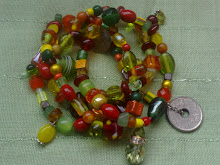The story revolves around a group of women residing on a small, struggling farm in 1692. There is Rebekah Vaark, the widowed wife of the owner who has travelled from Europe to marry. Lina is the Native American woman who becomes an exile in her own land when smallpox destroys her whole village. Sorrow is the simple-minded daughter of a sea captain whose boat is plundered by pirates leaving the strange child as the only survivor. Florens is the daughter of a slave who when threatened with exchange for the slave-owners outstanding debt offers her daughter in her stead.
When the women find themselves alone on the farm with the possibility of their mistress dying from smallpox, Florens is sent to find the blacksmith, a free black man, who seems to have the skill to treat the illness. Left to their own devices, each of the women have to make a choice about what they will do next; whether they will let their past choose for them or whether they will have the strength to
Considering the time period and characters, you would imagine that the central theme of the book would be slavery. Toni Morrison is such an accomplished writer though that things are never as clear-cut as black and white or oppressed and oppressor. The author shows how white people were also indentured slaves for periods of time and how thier illiteracy and poverty meant that they could not escape their situation.
Rebekkah Vaark and her husband are "unchurched" farmers, but in stark contrast to the Catholic plantation owners of Maryland have a strong distaste for slavery and have good relations with the free blacksmith. Indeed religion is shown to play a big part in the way different people treat slaves.
We also see the absolute helplessness of women, whether black, native, European, slave, free , religious or not. In contrast power resides with the men, whether they are worthy or not. We see the amazing strength of the blacksmith - brilliant at his trade, generous, treated as an equal by Vaark, fearful of no-one. As Lina notes, such a man is dangerous.
I liked how this book made the period more real through the events of that time - the beginnings of slavery, the hardships of small farmers, the passage from Europe to America, the beginnings of the witch-hunts that were made famous in Salem later on.
This is a difficult and at times confusing book to read, until you get to the end. The last chapter brings heart-breaking clarification and I closed it with tears in my eyes.
































No comments:
Post a Comment